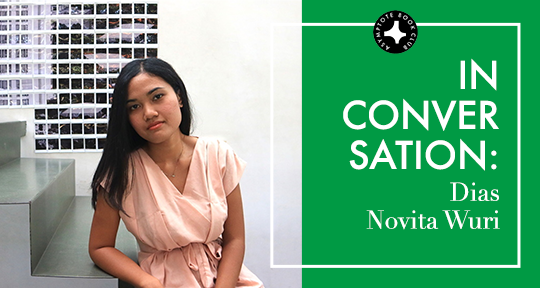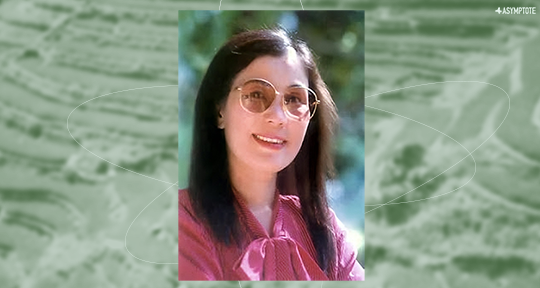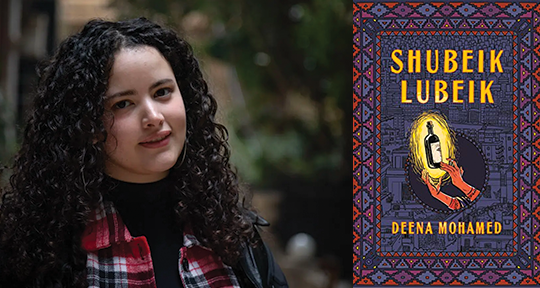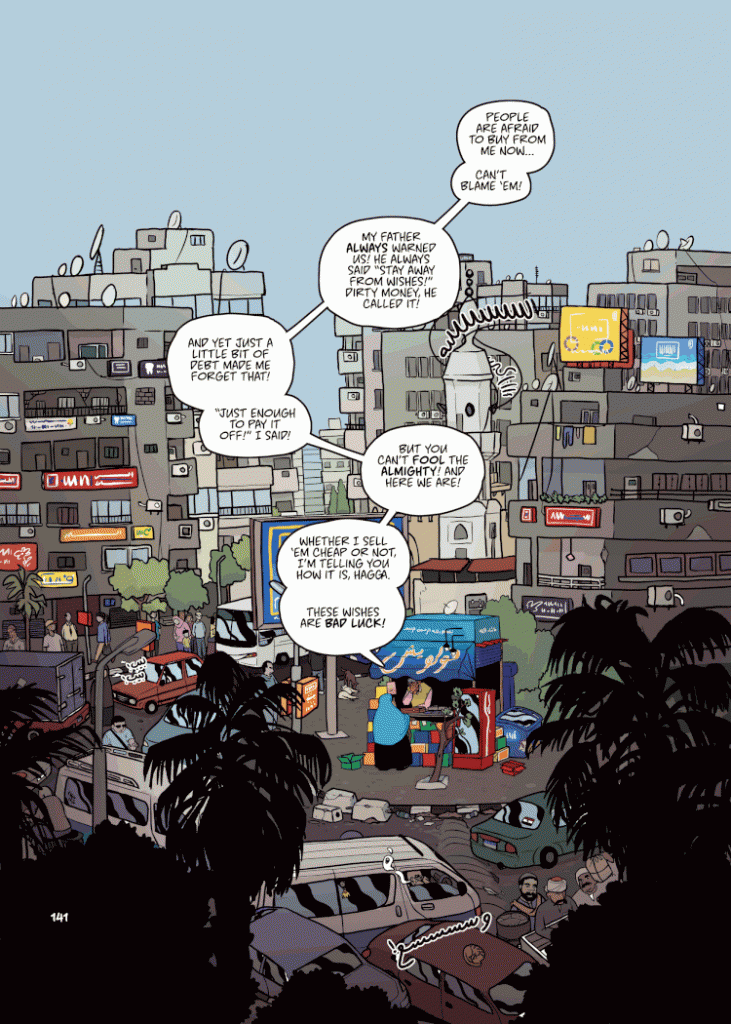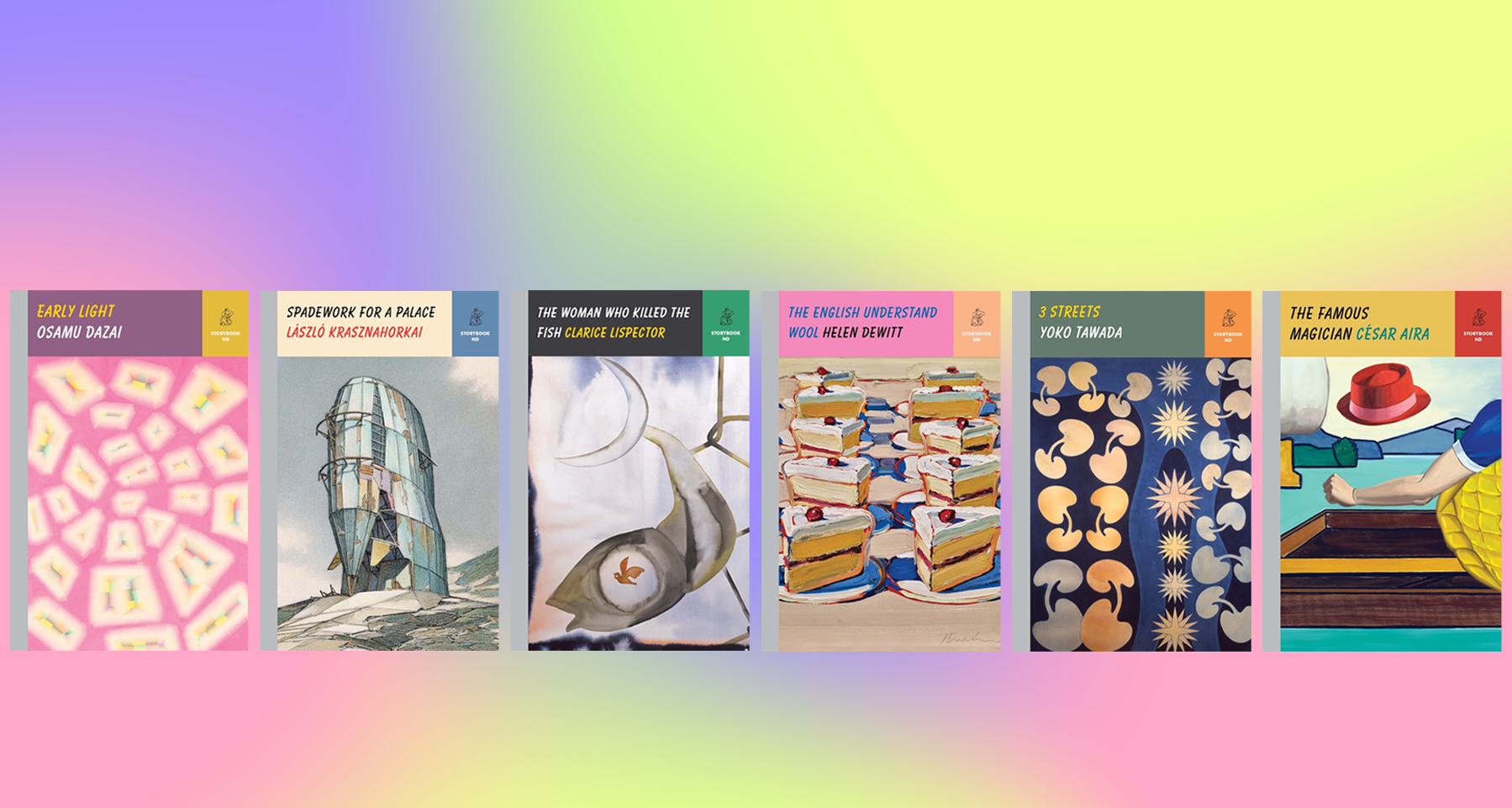In an intricately woven novel of generational legacies, untold inheritances, and our multivalent history, Indonesian author Dias Novita Wuri navigates the matrixes of family and geography with a profound and powerful voice. Tracing a passage of interconnected lives across nations, regimes, territories, and spectacles, Birth Canal is a testament to both the visible and invisible impressions that our bodies make upon the world, a challenge to the archetypal presentations of sexuality that inflict their discreet violences, and a documentation of courage and perseverance.
The Asymptote Book Club aspires to bring the best in translated fiction every month to readers around the world. You can sign up to receive next month’s selection on our website for as little as USD20 per book; once you’re a member, join our Facebook group for exclusive book club discussions and receive invitations to our members-only Zoom interviews with the author or the translator of each title.
Birth Canal by Dias Novita Wuri, translated from the Indonesian, Scribe, 2023
Birth Canal, Dias Novita Wuri’s provocatively-titled and self-translated debut novel, represents the Indonesian author’s mesmerizing endeavor to make visible both the female body and the structure of storytelling, deftly exposing the tensions between “legible” narrative and “shameful” history. Originally titled Jalan Lahir in its original Indonesian, the text carries multiple thematic and structural possibilities at its outset: jalan means pathway, road, approach, line, lineage, course, passage, while its etymological origins, borrowed from yalan in Ottoman Turkish, suggests deceit, fakery, lie; lahir, from the Arabic zahir, means “emergence / coming into existence” as noun, “to be born” as verb, and “outer,” “physical,” or “overt” as adjective.
Weaving this ambiguity throughout the narrative, Wuri explores the territory between linear storytelling and disputed, fragmented history by shifting gracefully between first-person, second person, and third-person omniscient viewpoints. As such, Birth Canal consists of four densely structured, cinematic chapters, crossing multiple timelines and cities in Indonesia and Japan to slowly reveal the links between its six female protagonists, Nastiti, Rukmini, Arini, Hanako, Dara, and Ayaka.
The novel opens in teeming, present-day Jakarta to trail after Nastiti, a young, sexually liberated office worker about to self-administer her abortion in secret; Indonesia—a Muslim-majority country—outlaws this procedure. The chapter is narrated from the perspective of an unnamed childhood friend who recounts his platonic, unrequited love for Nastiti up until the day after her abortion, upon which she disappears from his life. In his recollections, we see Nastiti refracted as a cypher—similar to how her image is captured on another occasion by a Western street photographer and subsequently enlarged for a gallery exhibition. The young man acknowledges that despite, or precisely due to Nastiti’s hypnotic allure, she is hard to read:
Sometimes Nastiti’s innocence could seem as bare as a peeled fruit, but that was only because she was allowing it. Other times she could close herself off completely.
READ MORE…




